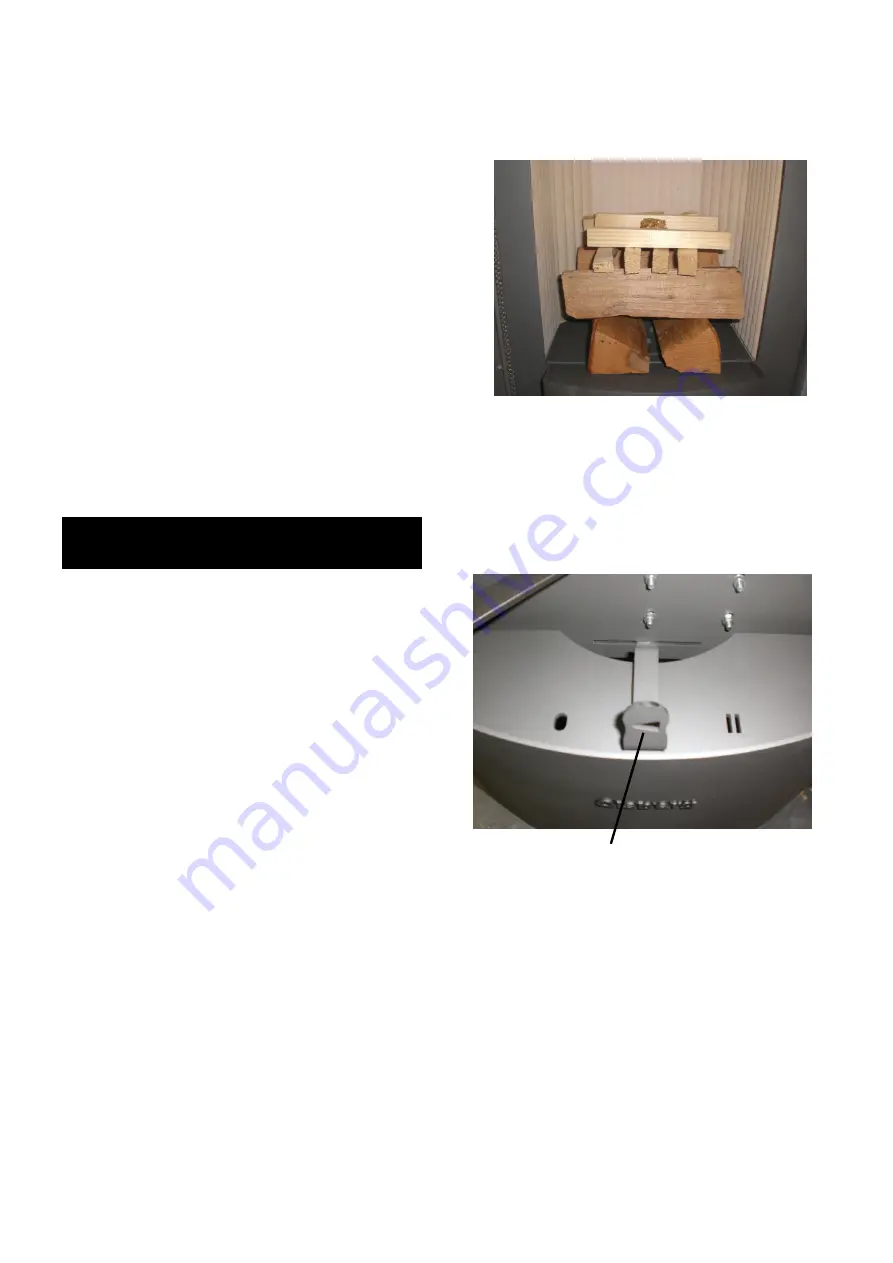
11
Operation
Permissible fuels
The following fuels are approved:
•
Natural shopped wood in the form of billet wood
Maximum length:
33 cm
Circumference:
approx. 30 cm
•
Wood briquettes to DIN EN 14961
Size class HP 2
Maximum length: 20 cm
Billet wood
reaches a moisture content of 10 to 15
% after being stored outdoors for 2 to 3 years (only
covered at the top) and is then ideally suited for heat-
ing.
Freshly cut wood
has a very high moisture content
and so burns badly. Apart from the very low calorific
value it is also harmful for the environment. The in-
creased condensate and tar formation can lead to
fireplace and chimney sooting.
You will only achieve optimum combustion and heat
in an environmentally friendly way with these fuels.
Adding the fuel in small quantities avoids unneces-
sary emissions. Clean burning can be identified by
the fact that the firebrick becomes a light colour.
According to the (German) Federal Immissions
Control Act, it is forbidden e.g. to burn the follow-
ing fuels in stoves:
•
Moist wood or wood treated with wood pre-
servatives
•
Sawdust, chippings, grinding dust
•
Bark and chipboard waste
•
Slack coal
•
Other wastes
•
Paper and cardboard (except for igniting)
•
Straw
Please note before heating for the first
time
•
Remove all accessories from the ash pan and
combustion chamber first.
•
The odour given off by the evaporation of the
protective coating disappears after the stove has
been burning for several hours (ventilate the
room well).
•
The stove has a high quality temperature re-
sistant coat, which does not achieve its final
strength until the stove has been heated for the
first time.
- You should therefore never leave anything on
the stove and not touch the surfaces as the paint
coat could otherwise be damaged.
Igniting
•
Empty the ash pan if necessary and slide back
in.
•
Open the primary and secondary air controller.
•
Place the kindling material (ignition cubes and
kindling wood) as described and ignite it from the
top.
•
Place and ignite the kindling materials (paper,
ignition cubes, kindling wood, etc.).
•
Close the door to the combustion chamber so
that the kindling material can catch fire.
•
As soon as the kindling material has burned
down, put on 2 burnouts consisting of 3 kgs wood
ensuring that the temperature resistant coating
reaches its final firmness.
Using the combustion air slide valve
Operating lever for combustion air supply
Operating lever on “0” = All slide valves closed
Operating lever on “I” = Secondary air slide valve
completely open/
Primary air slide valve
completely closed
Operating lever on “II” = Secondary air slide valve
completely open/
Primary air slide valve
completely open
Regulation of combustion air
Position of operating lever:
“II”
Ignition position, max. heat output
“I”
Rated heat output with billet wood
“I”
Rated heat output with wood briquettes
“0”
Obtain glow












































